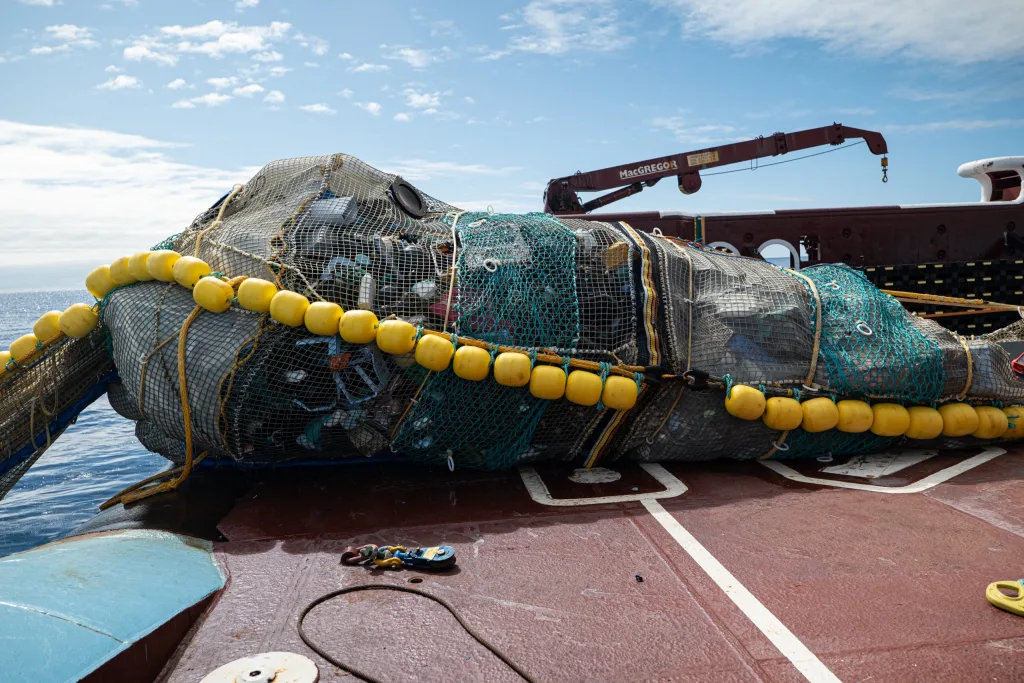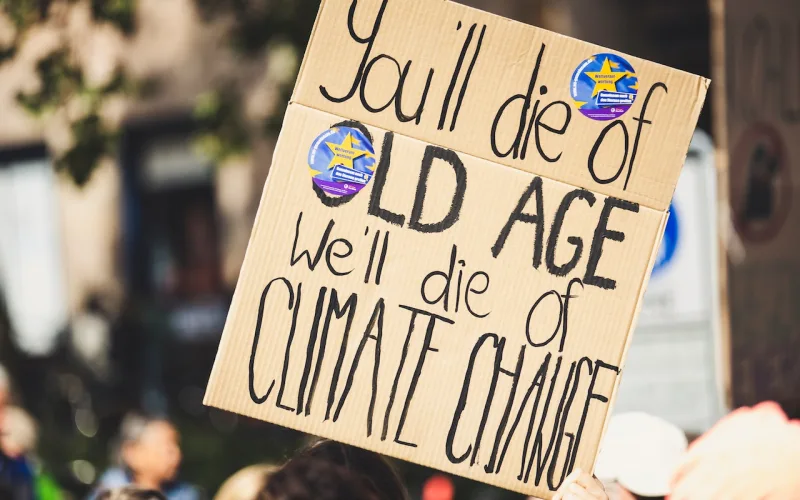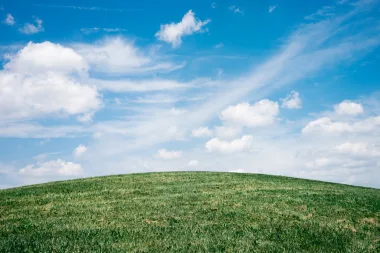Last Updated on August 24, 2023 by Ecologica Life
Data suggests that the world is warming because of the amount of carbon dioxide and other greenhouse gases in the atmosphere. As a side effect, the climate is changing, known as climate change or global warming.
Conversations about rising sea levels, disappearing species, and extreme weather events seem to be everywhere. Aside from the physical manifestations of climate change, what is the impact of climate change on our mental health? In this article we will be exploring eco-anxiety, why it occurs, who experiences it and how to deal with it.
Table of Contents
Eco-Anxiety Meaning
Ecological anxiety (not to be confused with economic anxiety) also known as climate anxiety refers to the fear and unease that individuals feel about the future of the environment and the planet. Younger generations in particular are struggling with these emotions.
Eco-anxiety is defined as “extreme worry about current and future damage to the environment caused by human activity and climate change”. It’s the sleepless nights as one thinks about the climate crisis. The sinking feeling when reading about the melting ice sheets. And it’s the guilt you feel knowing that your everyday actions can affect future generations.
This form of anxiety can come from many sources:
- The realisation of the scale and complexity of climate change and its solutions
- The onslaught of dystopian predictions in the media.
- The burden of responsibility placed on younger generations to find solutions.
Symptoms of Ecological Anxiety
What are the signs and symptoms of ecological anxiety? Like other forms of anxiety, eco-anxiety can manifest itself physically and emotionally:
- Psychological symptoms: Constant worry, feelings of anxiety and hopelessness, and worrying about the future.
- Physical health problems: Disturbed sleep patterns, fatigue, nausea and even panic attacks.
- Emotional reactions: A profound sense of loss for disappearing natural landscapes and species. This can be accompanied by guilt about one’s personal ecological footprint. And fear of what the future may hold.
Is Eco-Anxiety a Mental Illness?
Eco-anxiety is not classified as a separate mental disorder in the Diagnostic and Statistical Manual of Mental Disorders (DSM-5). This manual is widely used to diagnose mental illness.
However, this does not diminish the real and profound feelings that individuals may experience in relation to environmental concerns. People with anxiety disorders are more likely to experience eco-anxiety. For many, the anxiety is rooted in real world events and valid concerns about the future.
Eco-Anxiety Statistics
In surveys conducted in 2018, between 21% and 29% of Americans indicated that they were “very” worried about the climate. By 2023, 39% of Americans worry “a great deal” about climate change and 22% worry “a fair amount”. Taken together, this is 61% of Americans who are worried or concerned about global warming.

Six in ten Americans surveyed (1018 adults) believe that global warming’s effects have already begun. 62% believe it is caused by human activity rather than natural changes. 46% think global warming will be a threat in their lifetime.
Prevalence Among Children and Young Adults
In a 2021 survey, 10,000 young people (16-25 years old) from 10 countries were asked about climate change. 59% said they were extremely or very worried about it. More than 45% of respondents said their feelings about climate change had a negative impact on their daily life and functioning.
The Dual-edged Sword of Awareness
Being informed is crucial, but there’s a delicate balance. In the age of social media, the constant barrage of dire predictions can amplify feelings of hopelessness and despair. It is therefore important to disconnect from social media and the news and reconnect with the present moment.
How to Deal with Eco-Anxiety
It is important to set limits on news consumption and to be realistic. You are one person. It is true that one person can set things in motion that lead to great change. But climate change is complex, and we won’t be able to tackle it overnight.
There are ways to deal with the psychological impacts of eco-anxiety.
Active Participation
The first step to making a difference (and to do anything!) is to start small. Look around you. Maybe you’re worried about climate change, but your room isn’t even tidy. Start with that.
You’re cleaning your room and you realise that the plastic bottle you’re about to throw away could be recycled. Start with that.
You recycle it, but you feel still feel helpless. You have seen pictures of all the plastic in the ocean and you are deeply concerned about the microplastic problem.
OK, one plastic bottle isn’t going to make much of a difference. You want to do something big. Okay so why not join The Ocean Cleanup? They have volunteer opportunities and big ambitions. They want to remove 90% of the plastic from the ocean by 2040. It would feel good to be part of that, wouldn’t it?

You might be working full time and you are raising 3 kids. You don’t have time to volunteer when you’re juggling everything else. That’s OK too. Maybe you could spend a weekend gardening with your kids.
No garden? Teach your children how to recycle (batteries are very important) or how to reduce their carbon footprint. Take them to the farmers market and use reusable bags (or make your own!).
Teaching the next generation about sustainable living is no small task. It is vital that we do so. At the same time, you are making the most of your bonding time with them.
The bottom line is that you can turn your fear into something productive. Every small action can and will have a ripple effect. If you know about the butterfly effect, you know that a small action in the past can change the future drastically. Why don’t we believe that small actions in the present can have drastic effects in the future?
Mental Health Practices
Since we are talking about mental health, it is worth mentioning good mental housekeeping practices. Meditation and mindfulness can work wonders for an individual (it has for me). Journaling and reading can also help put things into perspective. Walking, exercise, and talking to friends and family are also important.
Of course, if you find that your mental health is deteriorating significantly. Seek help. There are many helplines, books, and organisations and mental health professionals who can provide support and guidance.
There is no shame in seeking help. We can’t always do everything on our own and sometimes we need others to advance in our lives. Treating anxiety is no small task.
Connecting with Others
You’re not alone with your feelings. Connecting with a community – either locally or online – can help you to find relief.
But be careful. It is important not to let yourself get swept up in the thoughts and opinions of the group (group mentality). Remember to think critically, as an individual.








